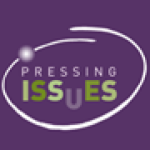Leveraging Email Marketing for Effective B2B Lead Generation
By Adil Husnain, techbullion.com
In the digital age, email marketing has emerged as a powerful tool for businesses to connect with potential clients and generate high-quality leads. For B2B companies, email marketing offers a strategic approach to reach decision-makers, nurture relationships, and drive revenue growth. At Beanstalk Marketing, we understand the significance of email marketing in B2B lead generation. In this article, we will explore the benefits and best practices of using email marketing to propel your B2B lead generation efforts.
The Power of Email Marketing in B2B Lead Generation:
Email marketing is a cost-effective and efficient way to communicate with your target audience, establish brand authority, and nurture prospects throughout the buyer’s journey.
Here’s why email marketing is vital for B2B lead generation
Targeted Audience Engagement:
With email marketing, you can create segmented lists based on various criteria, such as industry, company size, and interests. This segmentation allows you to tailor your messages to the specific needs and pain points of each group, leading to higher engagement rates and increased chances of converting prospects into leads.
Nurturing Prospects:
B2B sales cycles can be longer and more complex than B2C transactions. Email marketing enables you to nurture prospects over time, providing them with valuable content, industry insights, and solutions that address their challenges. This nurturing process builds trust and positions your business as a valuable partner in their journey.
Driving Traffic to Your Website:
Strategic email campaigns can direct recipients to your website, where they can learn more about your products, services, and company values. This increased website traffic not only boosts your online presence but also presents additional opportunities to capture leads through well-designed landing pages and lead capture forms.
Measurable Results and Analytics:
Email marketing platforms offer in-depth analytics that allow you to track the performance of your campaigns. You can monitor open rates, click-through rates, conversion rates, and other essential metrics. This data provides valuable insights into the effectiveness of your strategies, helping you refine your approach for better results.
Best Practices for B2B Email Marketing Lead Generation:
To maximize the impact of your B2B email lead generation marketing campaigns, follow these best practices:
Build a Quality Email List:
Focus on building an email list with high-quality leads who have opted to receive communications from your business. Utilize lead capture forms on your website, gated content, and other ethical strategies to grow your list organically.
Personalization and Segmentation:
Tailor your email content to address the specific needs and interests of your audience segments. Personalization goes beyond using the recipient’s name; it involves crafting relevant content that resonates with their challenges and goals.
Compelling Subject Lines:
Subject lines play a crucial role in enticing recipients to open your emails. Craft concise, clear, and compelling subject lines that convey the value of your message and pique the recipient’s curiosity.
Valuable Content:
Deliver valuable and informative content that showcases your expertise and adds value to your audience. Share industry insights, case studies, whitepapers, and other resources that position your business as a thought leader.
Call-to-Action (CTA):
Include clear and strategically placed CTAs in your emails. Whether it’s inviting recipients to download an eBook, register for a webinar, or request a demo, a well-crafted CTA encourages engagement and drives leads further down the conversion funnel.
Mobile-Optimized Design:
Given the prevalence of mobile usage, ensure that your emails are responsive and optimized for viewing on various devices. A mobile-friendly design enhances user experience and increases the chances of your emails being read.
A/B Testing:
Experiment with different elements of your email campaigns, such as subject lines, content, CTAs, and sending times. Conduct A/B tests to identify what resonates best with your audience and refine your approach accordingly.
Conclusion:
Email marketing remains an indispensable tool for B2B lead generation, offering a direct and personalized approach to engage with potential clients. Through targeted content, strategic segmentation, and thoughtful nurturing, email campaigns can build strong relationships with prospects and guide them towards conversion.

